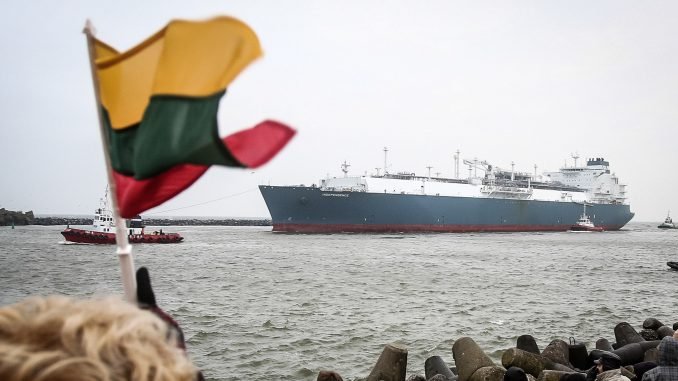
“Russia will continue with efforts to undermine Lithuania’s (Baltic countries’, EU’s) energy independence: it will use the political situation in individual countries and business entities loyal to Russia and will try to form a public opinion that the choice of energy independence is unnecessary for the country’s nationals, that it’s disadvantageous and unwise,” the report said.
The department also expects Russia to continue strengthening the energy system of its Baltic enclave of Kaliningrad and Belarus. At the same time, it will criticize Lithuania for worsening the region’s situation.
“In VSD’s view, despite economic downturn, Russia will still continue with gradual strengthening of energy system of the region of Kaliningrad and will invest continuously in the construction of various facilities in Belarus. At the same time, it will claim (through media, various international institutions) that Lithuania is allegedly undermining energy security of Kaliningrad region,” the document reads.
Russia has launched the projects of an LNG import terminal and an underground gas storage facility in a bid to minimize the dependence of Kaliningrad on the transit of Russian gas through Lithuania. In line with Gazprom’s plans, the LNG terminal should be built by 2018. The project of a nuclear power plant in the region of Kaliningrad has been put on hold, yet VSD believes it could be resumed quickly enough.
According to the department, Russia was proactive in criticizing Lithuania’s goal to build an LNG facility and interfered with efforts to create a diversified natural gas market.
Another report published on Monday said that Russia considered Europe’s goals related to energy independence as a threat to its military security.
“Russia is particularly sensitive to infrastructure, financial and legal developments in the energy system of the Baltic Sea region (in particular Lithuania’s) due to persistent dependence of Kaliningrad region on the transit of energy resources via a NATO country,” the report from the Second Investigation Department under the Ministry of National Defence said.

Be the first to comment